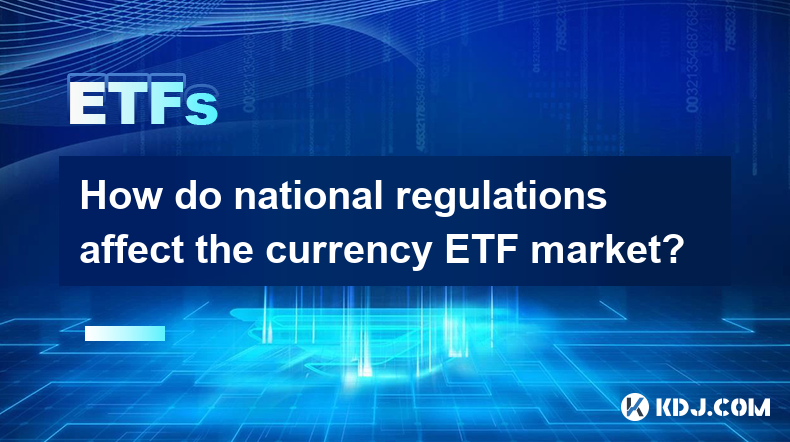-
 Bitcoin
Bitcoin $93,602.3659
6.91% -
 Ethereum
Ethereum $1,758.5924
11.56% -
 Tether USDt
Tether USDt $0.9999
0.00% -
 XRP
XRP $2.2214
6.72% -
 BNB
BNB $617.8314
3.52% -
 Solana
Solana $148.9760
9.14% -
 USDC
USDC $0.9996
0.00% -
 Dogecoin
Dogecoin $0.1799
13.14% -
 Cardano
Cardano $0.6820
9.59% -
 TRON
TRON $0.2479
0.49% -
 Chainlink
Chainlink $14.1250
8.00% -
 Avalanche
Avalanche $22.0564
11.95% -
 Sui
Sui $2.7332
24.78% -
 UNUS SED LEO
UNUS SED LEO $9.0430
-0.29% -
 Stellar
Stellar $0.2656
6.88% -
 Shiba Inu
Shiba Inu $0.0...01365
10.77% -
 Toncoin
Toncoin $3.0922
7.29% -
 Hedera
Hedera $0.1818
7.50% -
 Bitcoin Cash
Bitcoin Cash $360.5491
4.99% -
 Hyperliquid
Hyperliquid $19.1223
5.89% -
 Polkadot
Polkadot $4.0203
6.72% -
 Litecoin
Litecoin $83.5258
7.11% -
 Bitget Token
Bitget Token $4.5932
3.42% -
 Dai
Dai $1.0001
0.03% -
 Ethena USDe
Ethena USDe $0.9996
0.03% -
 Pi
Pi $0.6455
2.29% -
 Monero
Monero $225.6601
4.56% -
 Pepe
Pepe $0.0...08933
15.92% -
 Uniswap
Uniswap $5.8208
10.77% -
 Aptos
Aptos $5.2710
7.44%
How do national regulations affect the currency ETF market?
National regulations play a crucial role in shaping the currency ETF market, influencing ETF approvals, fund operations, and investor access and protection within their respective jurisdictions.
Jan 06, 2025 at 05:09 pm

Key Points:
- National regulations play a profound role in shaping the currency ETF market.
- Different jurisdictions adopt varying approaches to cryptocurrency regulation.
- Regulatory frameworks influence ETF approvals, fund operations, and investor access.
Impact of National Regulations on Currency ETF Approvals
- Approval Processes: Regulations establish the approval processes for currency ETFs, determining the criteria funds must meet to be listed.
- Investment Criteria: Approval authorities review the underlying assets, management strategies, and risk profiles of ETFs to ensure compliance with regulations.
- Regulatory Standards: Stringent regulatory standards can act as barriers to entry for currency ETFs, limiting their availability to investors.
Influence on Fund Operations
- Custody and Storage: Regulations mandate the secure custody and storage of cryptocurrencies underlying currency ETFs, ensuring asset protection.
- Risk Management: Fund managers must implement robust risk management frameworks to mitigate potential market volatility and ensure investor protection.
- Compliance Reporting: ETFs are subject to ongoing compliance reporting requirements, including disclosing their investment strategies and asset holdings.
Investor Access and Protection
- Investor Suitability: Regulations determine the suitability criteria for investors to participate in currency ETFs, assessing their risk tolerance and financial objectives.
- Disclosure and Transparency: Investors rely on clear and comprehensive disclosures about the risks and rewards associated with currency ETFs.
- Investor Protection Measures: Regulations provide safeguards to protect investors, such as restricting the leverage of ETFs and imposing liquidity requirements.
Country-Specific Regulatory Approaches
United States
- The US Securities and Exchange Commission (SEC) has yet to approve spot-based bitcoin ETFs, preferring ETFs that invest in bitcoin futures contracts.
- Regulatory concerns center around the potential for market manipulation and investor risks associated with direct bitcoin investments.
Canada
- Canada has approved several spot-based bitcoin ETFs, making it a hub for cryptocurrency ETF investment.
- The Ontario Securities Commission (OSC) has adopted a more progressive regulatory approach, allowing for ETF investment in physical bitcoin.
United Kingdom
- The UK Financial Conduct Authority (FCA) has expressed skepticism towards bitcoin ETFs, citing concerns about market volatility and lack of regulatory oversight.
- Limited options exist for UK investors interested in cryptocurrency ETFs.
European Union
- The European Union (EU) has adopted the Markets in Crypto-Assets (MiCA) Regulation, providing a comprehensive framework for cryptocurrency regulation.
- The MiCA is expected to harmonize regulations across EU member states and establish clear guidelines for currency ETFs.
FAQs
- Why are regulations important for currency ETFs?
Regulations protect investors, ensure the orderly functioning of the ETF market, and maintain the integrity of the financial system. - How do regulations impact investor access to currency ETFs?
Regulations determine who is eligible to invest in currency ETFs based on factors such as risk tolerance and financial sophistication. - What are common regulatory concerns related to currency ETFs?
Concerns include market manipulation, investor protection, and the volatility of underlying cryptocurrencies.
Disclaimer:info@kdj.com
The information provided is not trading advice. kdj.com does not assume any responsibility for any investments made based on the information provided in this article. Cryptocurrencies are highly volatile and it is highly recommended that you invest with caution after thorough research!
If you believe that the content used on this website infringes your copyright, please contact us immediately (info@kdj.com) and we will delete it promptly.
- After Being in a Downtrend, Dogecoin [DOGE] Is Poised to Reverse Its Current Outlook
- 2025-04-23 08:15:12
- RCO Finance (RCOF) Is Your Last Chance to Grab a Breakout Crypto Before It Takes Off
- 2025-04-23 08:15:12
- Qubic Becomes the Fastest Blockchain in History — Verified at 15.52M TPS by CertiK
- 2025-04-23 08:10:12
- Bitcoin (CRYPTO: BTC) price recovers as investors seek a safe haven
- 2025-04-23 08:10:12
- Galaxy Digital Holdings (BRPHF) Explodes Higher, Notching a Dramatic Intraday Surge
- 2025-04-23 08:05:12
- Why Qubetics Is the Best Altcoin to Buy Now
- 2025-04-23 08:05:12
Related knowledge

What role does SEC play in Bitcoin ETF approval?
Feb 25,2025 at 06:48am
Key Points:SEC's Role in Bitcoin ETF Approval ProcessHistorical Efforts to Establish a Bitcoin ETFSEC's Criteria for Bitcoin ETF ApprovalPotential Impact of a Bitcoin ETF on the Cryptocurrency MarketTimeline and Outlook for Bitcoin ETF ApprovalArticle:SEC Play in Bitcoin ETF ApprovalThe United States Securities and Exchange Commission (SEC) plays a crit...

Who is eligible to issue Bitcoin ETFs?
Feb 25,2025 at 11:13am
Key Points:Only regulated financial institutions with the necessary expertise and infrastructure are eligible to issue Bitcoin ETFs.The Securities and Exchange Commission (SEC) has not yet approved any spot Bitcoin ETFs, but has approved several futures-based ETFs.Applicants must meet stringent requirements, including having a strong track record and su...

What impact does Bitcoin ETF have on the market?
Feb 25,2025 at 11:37am
Key Points:Introduction to Bitcoin ETFs and their role in the cryptocurrency marketHistorical development and performance of Bitcoin ETFsPotential benefits of Bitcoin ETFs for investors and the marketRisks and limitations associated with Bitcoin ETFsRegulatory considerations and their impact on Bitcoin ETFsArticle:Introduction to Bitcoin ETFsBitcoin exc...

Which investors are Bitcoin ETFs suitable for?
Feb 27,2025 at 04:01pm
Key Points:Understanding Bitcoin ETFsBenefits of Bitcoin ETFsSuitability of Bitcoin ETFs for Different InvestorsAssessing Risk Tolerance and Investment GoalsConsidering Short-Term and Long-Term StrategiesExamining Tax ImplicationsSeeking Professional AdviceUnderstanding Bitcoin ETFsBitcoin exchange-traded funds (ETFs) are investment vehicles that track ...

What is the administrative expenses of Bitcoin ETFs?
Feb 26,2025 at 12:24am
Key Points:Administrative expenses are a crucial factor to consider when evaluating Bitcoin ETFs.These expenses can significantly impact the performance of the fund and ultimately the investor's returns.Understanding the various components of administrative expenses is essential for informed decision-making.Comparing administrative expenses across diffe...

What are the fees for purchasing Bitcoin ETFs?
Feb 27,2025 at 07:13pm
Key Points:Bitcoin exchange-traded funds (ETFs) are a cost-effective and regulated way to gain exposure to Bitcoin.Fees associated with Bitcoin ETF purchases vary depending on the platform, trading volume, and account type.It is essential to evaluate fee structures carefully to optimize investment returns.Fees Associated with Purchasing Bitcoin ETFs1. B...

What role does SEC play in Bitcoin ETF approval?
Feb 25,2025 at 06:48am
Key Points:SEC's Role in Bitcoin ETF Approval ProcessHistorical Efforts to Establish a Bitcoin ETFSEC's Criteria for Bitcoin ETF ApprovalPotential Impact of a Bitcoin ETF on the Cryptocurrency MarketTimeline and Outlook for Bitcoin ETF ApprovalArticle:SEC Play in Bitcoin ETF ApprovalThe United States Securities and Exchange Commission (SEC) plays a crit...

Who is eligible to issue Bitcoin ETFs?
Feb 25,2025 at 11:13am
Key Points:Only regulated financial institutions with the necessary expertise and infrastructure are eligible to issue Bitcoin ETFs.The Securities and Exchange Commission (SEC) has not yet approved any spot Bitcoin ETFs, but has approved several futures-based ETFs.Applicants must meet stringent requirements, including having a strong track record and su...

What impact does Bitcoin ETF have on the market?
Feb 25,2025 at 11:37am
Key Points:Introduction to Bitcoin ETFs and their role in the cryptocurrency marketHistorical development and performance of Bitcoin ETFsPotential benefits of Bitcoin ETFs for investors and the marketRisks and limitations associated with Bitcoin ETFsRegulatory considerations and their impact on Bitcoin ETFsArticle:Introduction to Bitcoin ETFsBitcoin exc...

Which investors are Bitcoin ETFs suitable for?
Feb 27,2025 at 04:01pm
Key Points:Understanding Bitcoin ETFsBenefits of Bitcoin ETFsSuitability of Bitcoin ETFs for Different InvestorsAssessing Risk Tolerance and Investment GoalsConsidering Short-Term and Long-Term StrategiesExamining Tax ImplicationsSeeking Professional AdviceUnderstanding Bitcoin ETFsBitcoin exchange-traded funds (ETFs) are investment vehicles that track ...

What is the administrative expenses of Bitcoin ETFs?
Feb 26,2025 at 12:24am
Key Points:Administrative expenses are a crucial factor to consider when evaluating Bitcoin ETFs.These expenses can significantly impact the performance of the fund and ultimately the investor's returns.Understanding the various components of administrative expenses is essential for informed decision-making.Comparing administrative expenses across diffe...

What are the fees for purchasing Bitcoin ETFs?
Feb 27,2025 at 07:13pm
Key Points:Bitcoin exchange-traded funds (ETFs) are a cost-effective and regulated way to gain exposure to Bitcoin.Fees associated with Bitcoin ETF purchases vary depending on the platform, trading volume, and account type.It is essential to evaluate fee structures carefully to optimize investment returns.Fees Associated with Purchasing Bitcoin ETFs1. B...
See all articles























































































